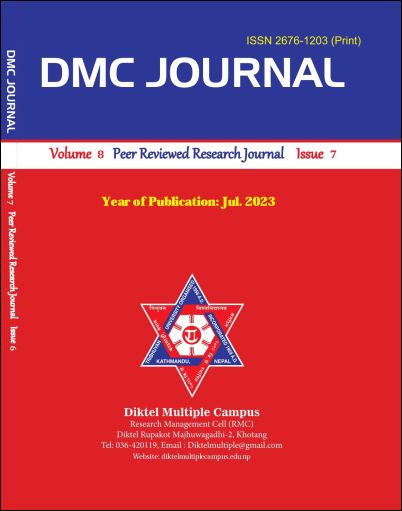Restructuring Nepalese Societies Through Residential Relocation and it's Social Effects
DOI:
https://doi.org/10.3126/dmcj.v8i7.62436Keywords:
Residence, relocation, suburban, social relationship, livelihoodAbstract
This paper focuses to voluntary relocation of residents of Nepalese society and its effects on social relationship which unfolds the restructuring and transforming old residential structure of Nepalese society. Some scholars attribute the individual factors to the residential relocation and exemplify the life-cycle changes of household heads or household composition such as the age, employment or marital status of the household head and the number of children (Rossi, 1955, p. 24). They believe that the increase of marriage rate and fertility rate are determinative conditions for the residential relocation and rapid expansion of suburban areas. Besides these arguments, many scholars have embraced various facets of social change with residential relocation and find that most residents move to significantly higher income and less racially segregated suburban neighbourhoods with access to better infrastructure, services, and amenities (Deluca et al., 2005; Diewald and Mayer, 2009). Suburban growth is propelled by transportation and technology development such as mass-produced automobiles and highways. It is interesting social phenomenon in Nepal that the residents on hilly side and remote areas are relocating slightly downward and near to market areas. This paper follows field work on Lele valley, Lalitpur district which is emerging suburban area. It finds that people prefer to relocate their residents near to market and transport facilities creating a new social relationship. . It is found that they relocate their residents because of income sent from their family members who are in foreign employment or they sell their land. They introduce a new type of nexus and relationship with new neighbors who are not among their kinship and start bounding in every occasion.




